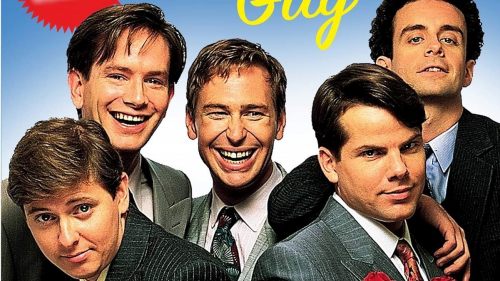Amazon Studios: To Pivot Or Not To Pivot?
Fresh out of 2018 ‘s Sundance, Amazon Studios and Amazon Prime had some interesting news released to the public. First, they raised prices to their Prime platform. Since Amazon Prime is also wrapped around shipping and pricing discounts, most folks can quickly do some math in their head and determine that even with the cost increase, they’ll save money by staying on Prime. Therefore, it's hard to imagine the new prices will end up changing much on the consumer side of things, except that Amazon will be able to pay for that new Lord of the Rings series.
The other piece of news is a little more difficult to unpack. First, Reuters broke a report that Amazon Studios was shifting away from the indie fare it had built its foundation on to “more commercial projects”. This came with a great deal of surprise to a lot of observers because it seemed like Amazon Studios had a lot of success in their short history. No Netflix film has ever won an Oscar (their excellent doc team has had several get nominated) and Amazon won two for Manchester By Sea. Also, their largest 2017 release, The Big Sick, grossed almost $43m at the box office and scored a screenplay nomination this week. It seemed like their strategy to follow in the path of the Sony Pictures Classics and Focus Features of the world was working.
Amazon quickly acted to rebuke Reuters, telling Deadline, “We are not abandoning the indie space”, and Fleming went on to provide some color explaining the Amazon Studios team of “[division head Jason] Ropell, Ted Hope, Scott Foundas, Julie Rapaport, Bob Berney all come from indie origins.” It’s an excellent observation by Fleming as they do have a distribution team built for indies and that team’s acquisitions read like a mix tape of favorite indie directors: Park, Allen, Guadagnino, Gilliam, Ramsey, Van Sant, Linklater, Haynes and Soderbergh. It’s very clearly a filmography driven by “I love that filmmaker, lets do their next film” thinking.
Reading between the lines, there’s some speculation one can indulge in, so let’s do that. First, Reuters used the words “plans to shift resources from independent films to more commercial projects” suggesting the indie film budget was being reduced, not eliminated. Ropell’s statement to Fleming basically confirms this. Here’s his complete quote:
We are not abandoning the indie space, we are increasing the potential size of the audience for our films; that in some cases involves higher budgets, but in others not. It’s about the potential for the film not the cost. Our roots are in independent/prestige film and we intend to continue in that space using it as a springboard to expansion and scale.
Ropell is careful here but he still equates “size” and “potential” and “scale” with “higher budgets” and “expansion”. To me, this says that they want more people to watch the content on their Prime platform than what their subscribers are currently doing, so they want different, more mainstream content. It’s also interesting that he’s defining “indies” by their budget and not their content. That expands the definition of indies as most think of them as non-mainstream content that won't open to saturated, 1000 theaters. By defining indies this way, Ropell is including all content that’s not produced inside the studio system, so in recent years, that would include movies like Arrival, Get Out, Split, John Wick and Sausage Party. These were all released by studios but made through independent producers. All these movies are excellent and resonated with a large audience, but focusing on them and not films from the filmmakers they have been in business with is a fundamental shift from pure artistry to a balance between art and commerce.
So, the way I’m reading Ropell is less movies about kids being burned while they sleep or girlfriends in a coma (I know, I know it's serious) to more movies that a mainstream audience will embrace. Now, of course, both Manchester By the Sea and The Big Sick had to cross over to a mainstream audience to reach the box office heights they did, but allow me to submit that broadcast, in this case Amazon Prime is where most people will end up seeing Amazon Studios’ movies and it's certainly best for the future of Amazon Studios if lots and lots of people watch these movies on Amazon Prime. It's great for the industry as a whole for Amazon to continue their theatrical strategy on their releases, but movies like Manchester By the Sea can suck up nearly their entire audience in theatrical release with a huge awards campaign. Also, if one goes to Amazon’s platform, you can see the user ratings (which Amazon relies on and factors into title performance) are filled with angry, one star reviews. In short, it's not a way the mainstream customer wants to spend their Saturday night.
So, who is right? Reuters or Deadline? I think the truth is more on Reuters side. It is likely Amazon would rather their Amazon Studios be bringing in content that’s going to be popular on their platform. That doesn’t mean they won’t be doing awards campaigns or movies from arthouse filmmakers, and they’ll still be buying and playing their movies at the biggest international film festivals. It’s in their best interest as it boosts their relationships with high profile talent and awards do bring prestige and awareness to the overall platform, but the number of arthouse films will likely decrease as they turn their focus on films like Get Out and Arrival. They want to (in their words) scale up to “highbrow” movies that appeal to both cineastes and mainstream audiences. It’s a tiny needle to thread, and it relies on embracing emerging talent and not the mix tape of filmmakers they’ve worked with in the past, so their challenge is much greater. Luca Guadagnino’s Suspiria is potentially an excellent example of this exact thinking and you could argue The Big Sick is exactly the type of film they should be looking for as it plays and can be packaged as a traditional rom com. I also wouldn’t expect them to continue to throw the insane number of millions they have in the past at awards campaigns. Amazon Prime also has strong relationships with two of the best indie distribution companies out there with A24 and Bleecker Street, so they will continue to get high quality, awards level films through those deals, and there’s logic in embracing the filmmakers coming from that pipeline since, again, these up and comers will be getting their largest audience on the Amazon streaming platform.
The big takeaway here goes back to my overall belief that content is king for everything including streaming platforms and while a diversity of content is needed and beneficial, movies that resonate with a mainstream audience will always drive long-term strategy. That doesn’t mean niche arthouse content doesn’t have its value for streaming but since it's for a select audience, its value will be second to content that plays for the masses.



